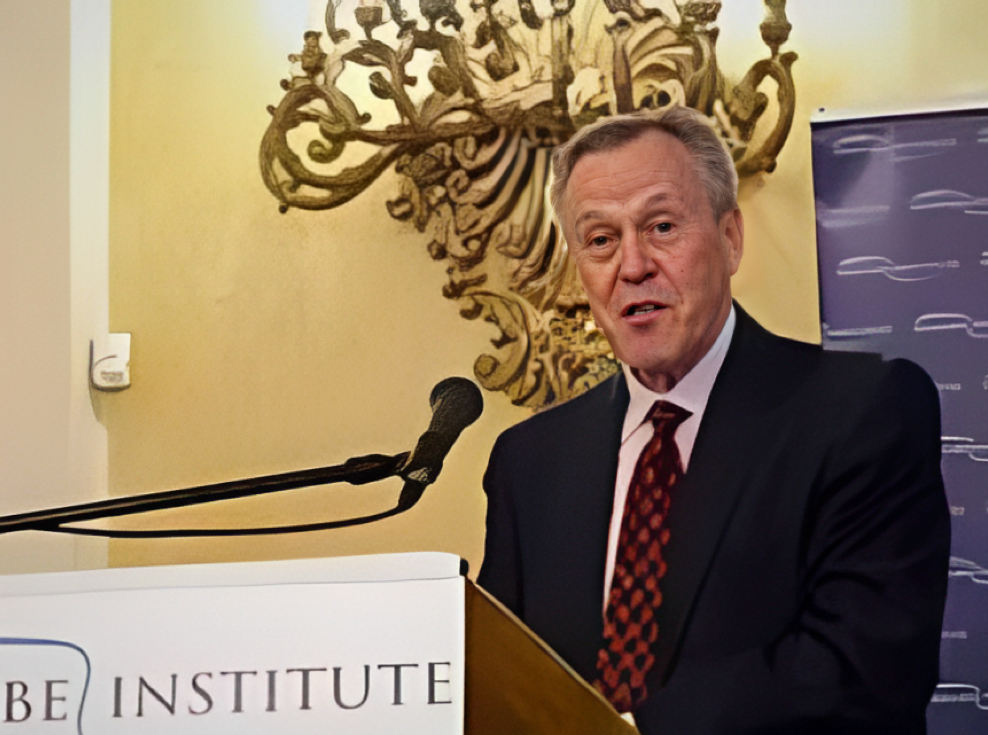1. Please tell us what role you will play in the TEXEM February 2023 programme, ‘ Self-awareness for better management of change in uncertain times, ‘ impacting the Leader today?
I’m pleased to deliver one of the live sessions featuring fundamental practical communication skills that will help any leader or manager sound smart, confident and convincing in all settings.
The key idea is this: It’s not what you say – it’s what they hear. So, if you’re trying to motivate a team to do something new and difficult, your words may be (more or less!) OK. But what if they’re hearing from your tone and the wider context such ‘deeper’ things as Boring, Lazy, Doesn’t Mean It, Sexist, Time-waster, Irresponsible, and Annoying? Your words will be wasted against this broader cynicism.
2. Do you consider this programme pertinent to the needs of Leaders?
Yes. Because if you don’t know how you’re coming across to the team, your seniors, customers, and regulators, what do you think you’re doing all day?
3. What benefits do executives stand to gain from participating in this programme?
The core benefit of the programme Self Awareness for better management of change in uncertain times is that they’ll think differently about themselves and their work. Coping amidst uncertain and challenging times requires just the right combination of determination and flexibility. You may think you’re getting that right? But what’s your test of success and your test of failure? This programme will make leaders optimise their decision-making credentials about areas for improvement, and it will make their organisations consistently learn, innovate and deliver excellent products and services to all stakeholders. The programme will help organisations win.
4. How would you recommend TEXEM’s forthcoming programme titled ‘Self-awareness for better management of change in uncertain times’, which will be held between February 11 to March 4, 2023, to Leaders?
Leaders anywhere in the world need to grasp the operational and policy distinction between what’s important – and what matters. It’s not enough these days to be grand or powerful and astute. You need to be convincing and effective. This programme helps you think hard about the necessary ‘mindset’ to achieve that. Also, TEXEM’s methodology of making learning fun, engaging and impactful is another critical reason why participants should attend this programme, Self-awareness for Better Management of Change in Uncertain Times. Also, research has shown that organisations with strong financial performance have a distinct feature of possessing more self-aware leaders than poorly performing companies. Also, organisations with more self-aware employees are likely to have more collaborative and cohesive teams and deliver superior performance.
5. How successful can a leader or manager be without Self-awareness?
Quite successful until everything abruptly crashes to the floor in pieces. A leader or manager with no self-awareness is like one of those children’s cartoon characters who walk confidently off a high cliff into thin air and keeps on walking happily in the air for a few paces before gravity starts asking difficult questions and the speedy painful fall begins. To achieve enduring success, teams in organisations must be emotionally savvy. They must possess the ability to identify and manage their emotions and identify and influence others’ emotions for results. When individuals, teams, and managers have excellent emotional intelligence, this could lead to a culture of learning and innovation that is challenging for others to imitate and could be one of the contributors to sustainable competitive advantage.
6. Many change initiatives fail; how could self-management help make change- management succeed?
There are no guarantees. You may even do the best possible job and succeed until something completely unexpected (say, a new invention or new policy context) comes along and wrecks everything. It’s genuinely hard to summon just the right balance between discipline, hard work, creativity and flexibility. But all these things require you to have the right competence and emotional stability to make you resilient despite headwinds, which is why this programme is relevant and necessary. This programme, Self-awareness for Better Management of Change in Uncertain Times, is critical as it equips organisations and their team to pay serious attention to their open and subliminal messages: their messages to your teams, customers, stakeholders, and yourself.
7. What is the format of the programme?
The Self-awareness for Better Management of Change in Uncertain Times programme is a combination of self-paced study and live sessions. Participants will study for an average of one hour every day between February 11 to March 4, and there will be live sessions every Saturday for four weeks. The experience has been gamified such that participants will get points ranked on a league table for every article read, video watched, and comment made. The top 5 on the league table will be recognised each weekend when we have the live sessions via zoom, during which different faculty will deliver. For example, each live session on Saturday will have Professor Randal Peterson of London Business School, Professor Paul Griffith, the world’s first Professor of Management to lead a team to launch a rocket, and I deliver.
We’ve got the edge. Get real-time reports, breaking scoops, and exclusive angles delivered straight to your phone. Don’t settle for stale news. Join LEADERSHIP NEWS on WhatsApp for 24/7 updates →
Join Our WhatsApp Channel










